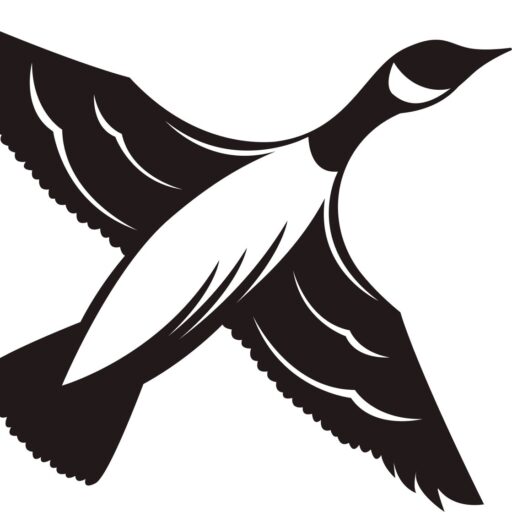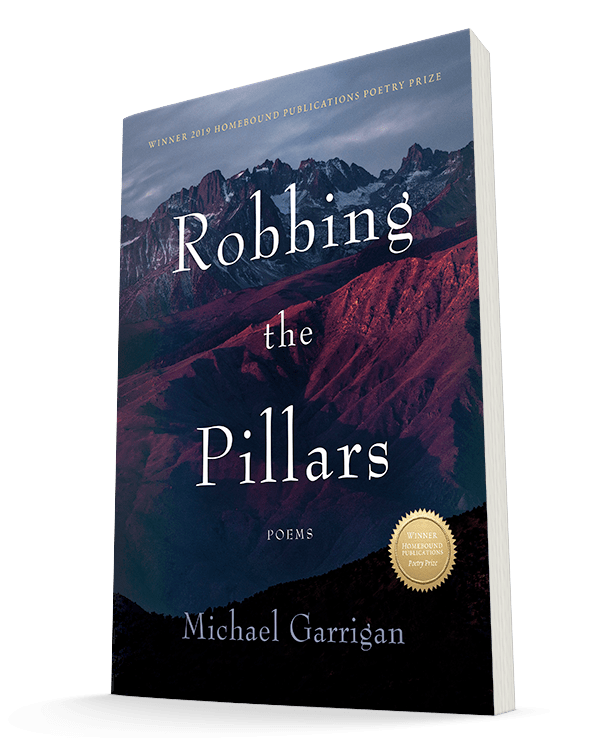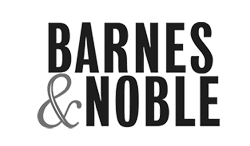michael garrigan
The headwaters of Robbing the Pillars begin deep in the anthracite country of Pennsylvania and wind their way through mountain tributaries before reaching the Susquehanna River. These poems venture out west through smeared Nebraskan skies, up wild Washington waters, and into the Siskiyou Mountains as meteors split the sky on fire. They traverse the wet woods of Maine along the West Branch of the Penobscot River to the peak of Katahdin. They hike the Appalachian, Continental Divide, and Pacific Crest Trails. In the early coal mines of Pennsylvania, miners crawled into the deepest parts of the mines, set dynamite, and blew joists holding up walls in hopes of getting the last valuable rock before the mountain collapsed — robbing the pillars. The poems in Robbing the Pillars are the dynamite, the pillars, the rock, the mountain, and the miners. They embrace terrains familiar and forgotten — those which have been stripped and left to become wild again. They explore the physical (geological, riverine), familial, personal, and cultural landscapes of our world as we rob its pillars.
now available
Robbing the pillars
978-1947003842 | Trade paperback | 116pp | List: $16.95
The headwaters of Robbing the Pillars begin deep in the anthracite country of Pennsylvania and wind their way through mountain tributaries before reaching the Susquehanna River. These poems venture out west through smeared Nebraskan skies, up wild Washington waters, and into the Siskiyou Mountains as meteors split the sky on fire. They traverse the wet woods of Maine along the West Branch of the Penobscot River to the peak of Katahdin. They hike the Appalachian, Continental Divide, and Pacific Crest Trails. In the early coal mines of Pennsylvania, miners crawled into the deepest parts of the mines, set dynamite, and blew joists holding up walls in hopes of getting the last valuable rock before the mountain collapsed — robbing the pillars. The poems in Robbing the Pillars are the dynamite, the pillars, the rock, the mountain, and the miners. They embrace terrains familiar and forgotten — those which have been stripped and left to become wild again. They explore the physical (geological, riverine), familial, personal, and cultural landscapes of our world as we rob its pillars.
_______________________
Available in Paperback and ebook.
*Receive 20% off when you purchase in our store
+ Free shipping on orders over $40.00 with coupon code: INDIESTRONG
praise for Robbing the pillars
“Garrigan’s fine collection professes, articulates, and, most importantly, enacts a profound affection for the natural world and our non-human neighbors. The contact here is direct, and the engagement with the terrestrial earth, that invaluable text, is authentic. These are poems capable of enhancing, deepening, our days astream and afield — a rare feat, indeed.” —Chris Dombrowski, author of Body of Water
find our titles
Readers can order books directly from Homebound Publications & Divisions online where we have the never-ending sale. You can always save 20% on your entire order coupon code: INDIESTRONG + free shipping on orders over $40 with .
Retailer? All Homebound Publications titles are distributed by Publisher’s Group West, and are available through wholesalers such as Ingram and Baker & Taylor.
Give Today
Your donations will be placed towards expanding the number of titles we are able to accept each year, giving a voice to the countless independent thinkers currently neglected by the mainstream media. Now, more than ever, your support is appreciated.
LEARN MORE ABOUT THE GIFTS YOU GET FOR GIVING
Donate Today
Get In Touch
(860) 574-5847
info ‹at› homeboundpublications.com
Postal Box 1442, Pawcatuck, CT 06379-1442
Passionate about independent storytellers? Join the circle.
Reach out to us . . . Send an email. (GASP) Pen a letter. Reach out to an authors. Ask a question. Tell us your story . . . Donate toward our future (if you are so inclined) . . . Just reach out to us. We are a community, not a company and you are a part of that community.








